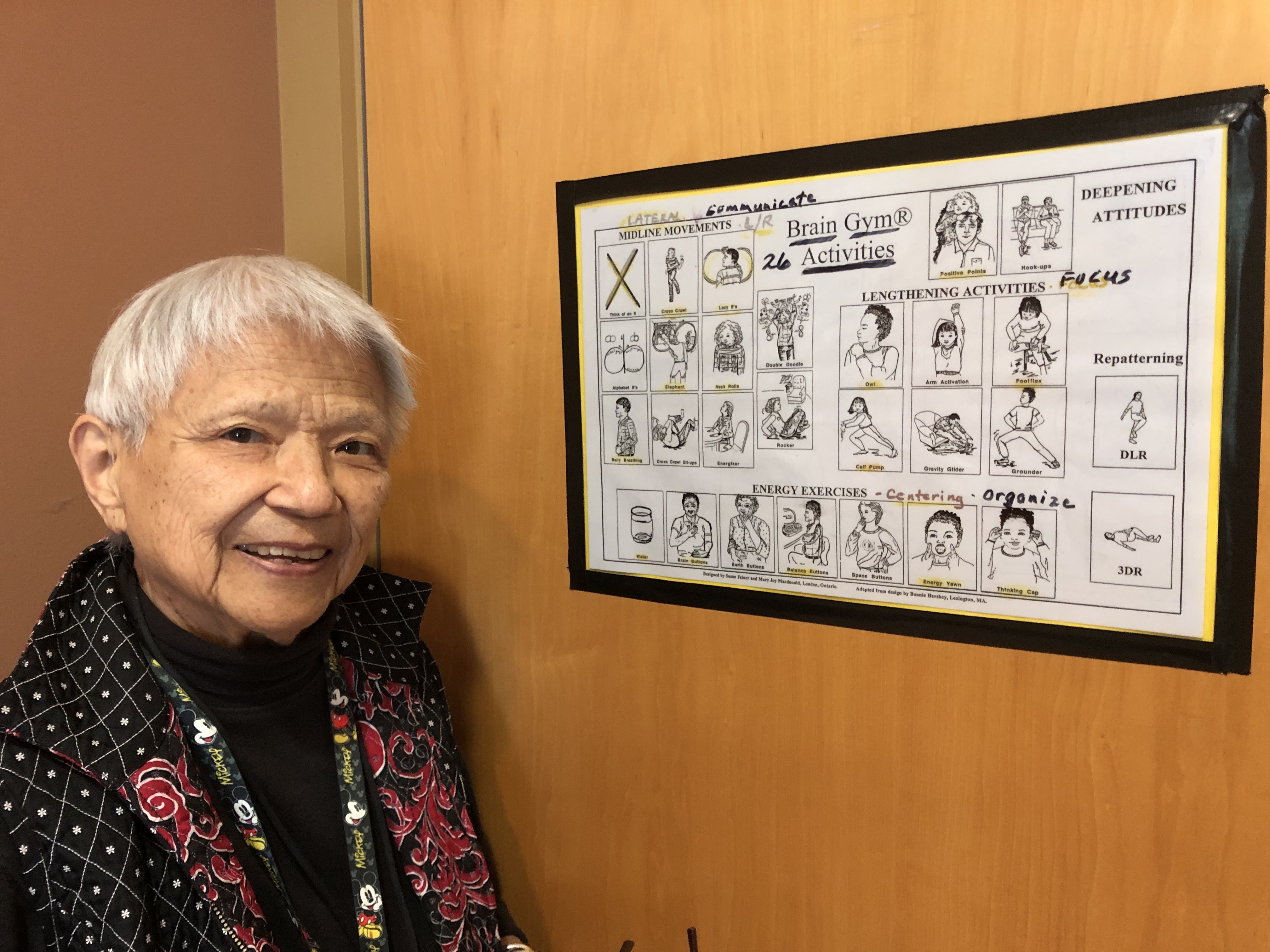MEMBER SPOTLIGHT: Retired educator still uses movement to teach children
 Opal Wong left the classroom in 1994 after 37 years in East Lansing schools, but the MEA-Retired educator and certified Brain Gym instructor never stopped using movement to teach children. Now 90, she shares how knowing the brain-body connection can help educators help young people.
Opal Wong left the classroom in 1994 after 37 years in East Lansing schools, but the MEA-Retired educator and certified Brain Gym instructor never stopped using movement to teach children. Now 90, she shares how knowing the brain-body connection can help educators help young people.
Did you always want to be a teacher? I never wanted to be a teacher; I thought I would be a social worker. But I always loved learning and still do. My mother said, “Be curious.” My dad said, “You never stop learning.” Coming from my background – three sisters were born in China, and I was the first of four children born here. Growing up with a non-English speaking family, just like immigrants now, we all have that dream of America. We worked in our family’s laundry business and worked hard in school. We did our homework, but also play was important. I just loved school and the kind people there. So when I became a teacher, it was like going to heaven.
Why did you start using purposeful movement in your teaching? I’ve always been aware of the mind-body-brain connection. I’ve been so lucky in my life to learn from wonderful teachers all over the world. The pathways that connect our body and brain are always sending electrical energy back and forth across the nervous system. We can help that by hydrating – because water conducts energy – and breathing to increase oxygen. And we know specific movements to do with our body that can stimulate, unblock or calm parts of the brain. The first level of the brain is about staying safe; it’s a survival thing. If you can get past that, you can move on to higher levels. The ultimate learning state is relaxed and alert, and we can help children find it.
If an educator wants to try what you do – what’s a good starting point? I talk about the 26 moves in Brain Gym; these are simple moves for calming and focusing. I use them myself. There are different ones—Lazy 8, for example, helps kids who struggle to read. But to get started, try P.A.C.E. [Positive, Active, Clear and Energetic – a four-step Brain Gym warm-up]. Do it every day. It works and takes less than four minutes. I always start with telling my students, “take a drink of water,” because water is so important. The next step is brain buttons to stimulate oxygen flow – one hand on your stomach, one hand on your chest right under the sternum, and lightly massage – breathing in, letting go, three times. Then switch hands. The next one is cross-overs to get both sides of the brain working together. The last one is hook-ups, and doing these brings a sense of safety and calm to the body. Kids love to do these moves.
Over six decades, I’m sure you’ve helped so many. My gosh, there’s so many. A former student just retired at age 60, and she said to me, “You treated us as real people. You gave us choices.” I still get letters thanking me for what they remember, that I believed in them. When I retired, I went back to volunteer. I said, “Give me the ones that are giving you the most trouble.” I worked one-on-one, usually for half an hour. I would always say, “What do you need to accomplish today?” so we could be sure to get that done. But we started with water and movements. After they learned the moves, I’d say pick two and do them. I let them choose. If they make a decision and do something purposeful, then when they go back they have an intention. They would tell me, “When I do this, I can think better.” I would say, “You are so smart; I like you because you make me look good,” and we would laugh together. Then the teacher would tell me, “When you’re not here, they still do the moves.”
You retired 30 years ago. What keeps you going at this work? I take this as a gift to be able to help children—I think it kept me young. I like being part of a community of children and their parents. The thing is I’ve had a wonderful life, and I hold on to gratitude. I’m very optimistic; I know that. I’ve always been told that’s just who I am. I know it’s hard to look at the world today and be grateful, but we have to be. Every day I say, “Thank you.” I believe in our hearts all of us want peace, all of us want safety, all of us want love, and all of us want to be the best we can be.
If you would like to learn more about Opal’s tips, email MEA Voice Editor Brenda Ortega at bortega@mea.org.



